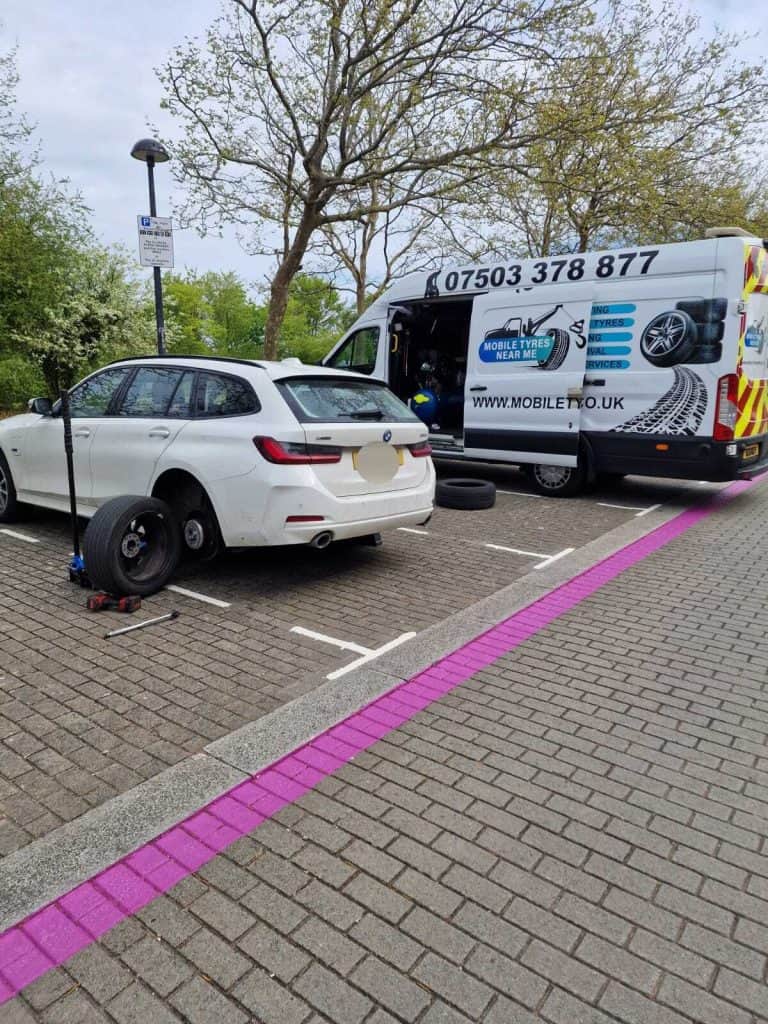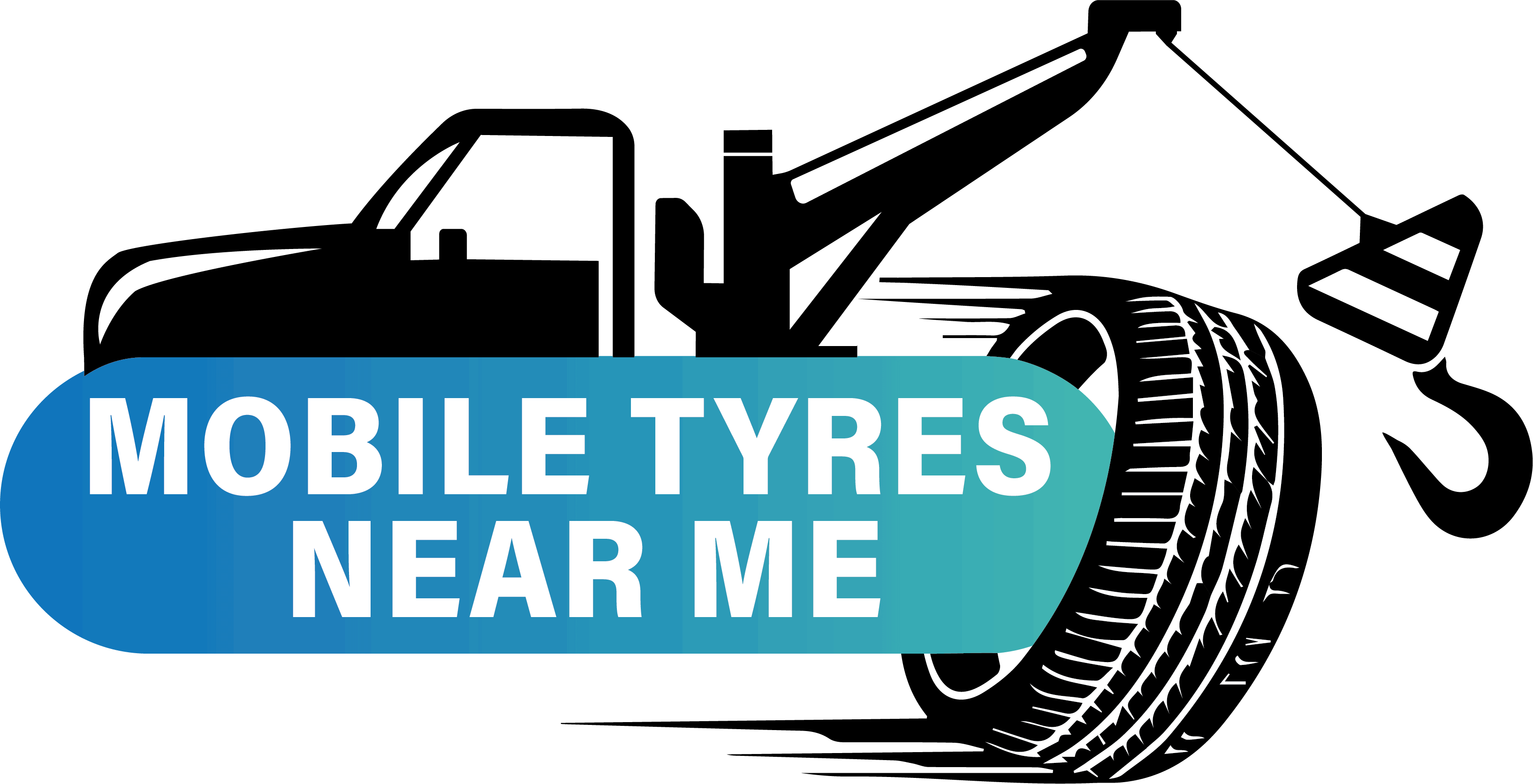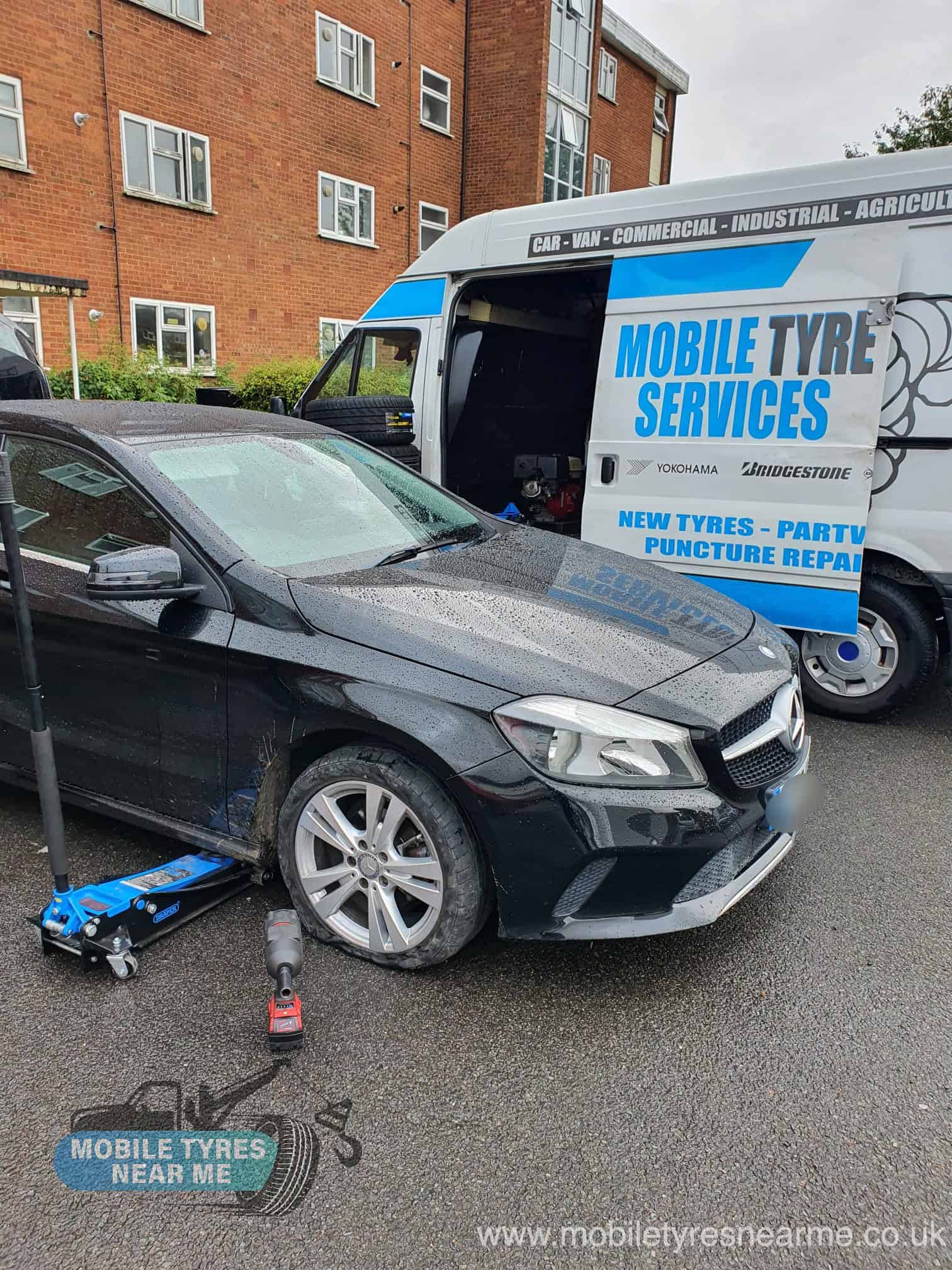The Benefits of Choosing Mobile Tyre Repair Over Traditional Garage Visits

When you face a flat tyre or a puncture, the choice between mobile tyre repair and a traditional garage visit is crucial. Mobile tyre fitting brings the workshop directly to you, offering a modern solution that prioritises convenience and speed. This guide breaks down the key benefits of choosing an on-site mobile service over a trip to the garage, helping you make an informed decision based on cost, safety, and getting back on the road quickly.
Mobile Tyre Repair vs Garages
Clear trade-offs shape the choice: flexibility and speed from a van at your door, or breadth of stock and workshop tools inside a bay. Both swap tyres and repair punctures, and each fits different occasions on the road.
1. Convenience
Mobile fitting comes to your home, workplace, hotel or roadside location. There are no shuttle rides, no waiting room, and no shuffling your day. A fitter turns up with tyres, tools and a plan, and you get on with work or family life while the work is done.
It does what a garage can’t. Bustling ring roads, country lanes, multistorey car parks, even a hard shoulder with traffic wardens in attendance – crews master awkward access and manage disruption. Drivers with limited mobility find this service removes the hardest step: moving the car.
A trip to a garage means travel, a wait, and time wasted. Peak times, weekends, and holidays may stretch waits. In the UK, more drivers are opting for mobile fitting because the availability and location control is with them, not the book behind a service desk.
For busy schedules, school runs or shift work, doorstep fitting is the sensible way forward.
2. Speed
The comparison between mobile fitting and garages cuts downtime, which counts when a flat halts a school run or a delivery run.
Garages can be quick, but backlogs and travel add delays. If the nearest slot is across town, the clock is ticking.
Mobile vans carry what they need: jacks, stands, compressors, plug-and-patch kits, torque wrenches, and diagnostic tools, so repairs or swaps happen on the spot. For a nail puncture at 08:00 or a blowout after dark, mobile fitting cuts the wait to the work.
3. Cost
Expect a call-out or mobile service fee on top of tyre and labour. Garages charge standard labour, typically without a call-out fee, but you go to them.
Factor in extras. With a garage, you’ll be paying tow, rideshare, or admin fees if plans change. Lost work time comes at a price as well.
Service type | Mobile fitting (average) | Garage (average)
Puncture repair | €35–€60 plus call-out | €25–€50
Tyre change (per tyre) | Tyre price plus €20–€40 for fit/balance plus call-out | Tyre price plus €15–€35 for fit/balance
Out-of-hours emergency | Premium often | Sometimes limited
A minor mobile surcharge can still save you a tow and hours off your day.
4. Service
At-your-door service feels personal: the fitter talks you through tread wear, valve issues, and torque checks, then hands back a road-ready car. A lot of companies operate outside conventional hours and do emergency call-outs.
Garages tend to have a broader stock range, including specialist and performance tyres. If you require rare sizes, run-flats in pairs or heavy-duty balancing, a workshop is usually better equipped.
Mobile teams are customer-led and flexible. They won’t carry heavy mounting machines or deep back-room stock.
Both use trained fitters and quality gear, so safety standards are high.
5. Safety
Mobile fitting gets you roadworthy quicker. This makes a difference when you have a blowout in rain or low light. Fitters shut down the area with hazard lights, cones and safe jacking points. They then torque wheels to specification.
Garages provide a controlled bay with lifts and full balancing rigs, which is perfect for more complex damage, rim repairs, or alignment issues. Select this option if the tyre was punctured by impact and the wheel requires closer inspection.
For urgent threats, such as being stuck on a verge, a tunnel exit, or in a storm, mobile fitting is the safer short-term bet. Then arrange a follow-up check if necessary.
The Garage Advantage
Garages are ideal for jobs that go further than a simple swap. Fixed sites have space, power and trained teams, so they can look deeper and act faster on complex faults. They offer shelter, consistent lighting and tools that mobile vans cannot transport.
Complex Repairs
Garages take care of tyre problems related to wider vehicle faults, like worn suspension arms, bent track rods or misaligned subframes. When a car goes to one side after hitting a kerb, a garage can do a full alignment check, correcting camber, caster and toe rather than simply fitting a new tyre.
They can repair structural damage around the wheel arch area. Buckled rims, cracked alloys, corroded hub faces and seized studs need presses, lathes and heat tools. If a puncture conceals a split sidewall or a buckled rim, a garage can repair or replace the rim, then refit and test the tyre.
Larger vehicles and bespoke setups stretch mobile gear to the max. Vans will have difficulty with 20 to 22 inch performance wheels, run-flats with stiff sidewalls, light commercial vans with high load ratings, or SUVs with staggered setups. Garages have ramps and heavy equipment to control weight and size safely.
Choose a garage when you want a full check: brake wear, shocks, steering joints, alignment, and a quick diagnostic scan. Numerous facilities can incorporate this into an MOT or service, preventing return trips if you’re already in for several jobs.
Specialist Tools
Heavy-duty tyre changers, assist arms, bead blasters, and low-profile clamps help you remove tight beads without scuffing a rim. That’s important with performance tyres and delicate finishes.
Run-flat installations, custom rim fittings and sealant clean-ups require a kit most mobile vans won’t have. Sensors can be programmed and valves torqued with certain tools to reduce leaks and warning lights.
High‑spec balancers and four‑wheel alignment rigs hone ride quality. A good highway balance can eliminate steering wobble at 110 km/h. Correct alignment safeguards tread and fuel consumption.
Garages usually have broader stocks of niche tyres, TPMS parts and spacers. That shortens delays for oddball sizes.
Weather Immunity
Work carries on in the rain, wind or even in snow, as the bay is dry and well lit. The vehicle and tech remain protected, reducing risk during jacking and torque tests.
Mobile fitting can pause in storms or extreme heat, while garages run year-round within 9:00 to 17:00 hours. Expect queues at weekends and holidays, and factor in wait times or book in advance.
As long as you’re not in a hurry and can drive safely, then a garage visit is acceptable for rotations, multiple tyre changes or scheduled winter swaps. Bear in mind that emergency or out-of-hours assistance can be pricier, and you will have to venture out, sign in, and at busy times, wait for hours. Old habits die hard; many drivers still luxe for the garage for routine care.
Emergency Roadside Assistance
Emergency mobile tyre fitting is the lifeblood of modern roadside assistance and breakdown recovery. It brings a trained fitter, tools and tyres to you on a hard shoulder, a lay-by, or a home drive so you skip the wait and the risk of driving on a damaged tyre. Donned for flats, punctures and blowouts day or night, it is frequently the safest call in quick or foreign traffic. Most breakdown companies work with mobile fitters, sending out whichever fitter can get to you quickest. Store your policy number and phone numbers in your phone and glove box for a quick handover when stress levels are high.
Immediate Response
- 24/7 call-outs, live ETAs and phone triage.
- Faster to arrive than booking a garage slot, you stand by.
- Minimises rim damage, suspension strain and time spent roadside.
- Suits urgent failures: blowouts, motorway punctures, or flats with no spare.
Most providers operate 24-hour crews. Response times depend on traffic and distance. The goal is to prevent you waiting for hours, which is important for safety as much as comfort. Use mobile fitting when a fault can’t wait, such as sidewall cuts, bead leaks, or a tyre beyond safe repair.
Some services tack on out-of-hours fees, typically between £50 and £100. Request a full quote including tyre, valve, balancing and disposal before you accept.
Your Location
- Motorways and trunk roads
- Office car parks and shopping centres
- Home drives and residential streets
- Remote B-roads, rural lanes, and tourist routes
Location flexibility is a major advantage over garages, which require you to bring the car in. Far from a workshop or parked in a time constrained car park or just somewhere you don’t know, mobile fitting is the sensible solution. It keeps you where you feel safe if the problem is minor and you can wait.
On very narrow roads or unsafe shoulders, the fitter might first move you to a nearby safe area and then complete the work.
No Towing
It takes towing off the agenda. On-the-spot repair or replacement has you rolling again without queuing for a truck, then queuing again at a garage. That saves time, fuel and brain space, particularly during rush hour or in the countryside, where trucks are doing long hauls.
If there’s no spare and the tyre is beyond repair, tyre recovery services will transport you and your vehicle to a garage. Still, mobile first deserves a chance. Many punctures are repairable at the kerb, cutting downtime and expense.
My Take: The Stress Factor
Stress Factors: Stress hits hardest when a flat arrives at the most inconvenient time. Your emergency mobile tyre fitter or garage would usually decide how long that stress remains and how much of it you retain. Below is a simple, practical lens: what, why, where, and how stress shifts in real life.
Peace of Mind
Having a 24/7 mobile fitter who can get to you on the hard shoulder, in a car park or even outside your home takes the panic out of being stranded. It means help in the dark, in rain, or on a quiet road, not a pray that a garage can see you next week.
When help comes quickly, nerves are calmed. A trained tech inspects the tyre, wheel and pressure sensors and repairs or replaces them on the spot. That saves the vortex of “what ifs” and long calls to tow-truck companies.
Factor in breakdown cover with mobile tyre fitting and you’re never left high and dry. One call, one visit, clear costs and a safe way home.
For the late-night drivers or anyone who carts the kids and work kit about, get a roadside package with tyre cover. It’s a low-effort hedge against misfortune and insomnia.
Time Reclaimed
A mobile service fits around your day so you stick to your plans. You can carry on working on a laptop at home, preparing dinner, or in the middle of a meeting while the fitter works outside. The work gets done without a lost day.
Skip the queue, the coffee in a plastic cup and the clock-watching at busy garages. Peak periods are hurried and anonymous. Mobile fitters provide calm, one-to-one attention. In cities where a round trip to a workshop can eat hours, that composure counts.
They enter your diary, not the reverse. The first thing on your driveway, lunchtime at the office, or evening outside a gym leads to less shuffling and less stress.
You are gaining hours that would otherwise be spent on drop-offs, lifts and waits.
Control
Mobile fitting leaves you the where and when: home, office, roadside – your choice, not a garage opening time.
You can observe the work, confirm torque settings, pre-approve brands, and request a puncture repair instead of a full swap if safe. Clarity breeds trust.
My Take: The Stress Factor
You talk to the tech that works on your car, not a crowded desk in rush hour. Crystal clear notes on tyre size, load rating and budget from the off means fewer surprises.
Say it how it is. Update your timetable, parking access and wheel-lock key location. The clearer the brief, the easier and quicker the job.
Professional Expertise Compared
Picking emergency mobile tyre fitting or garages is down to skill set, tools and conditions. Both depend on trained professionals, comply with industry standards and employ approved equipment. The best decision usually comes down to how tricky the fault is, how quickly you need assistance, and where the vehicle stands currently.
Mobile Technicians
Mobile Tyre Fitters train for speed, clarity and calm under pressure. They work kerbside, in car parks, or on driveways, so they learn fast triage: identify the fault, judge safety, and act. That focus is essential when a puncture halts a school run or delayed flight collection. On-site work reduces the chance of driving on a damaged tyre in the rain or dark.
Training is not a one-off. Many reputable services hold regular sessions on run-flats, TPMS, EV loads and mixed wheel sizes. Most do cars, vans and LCVs with clear procedures for jacking points and torque settings across brands.
Vans pack more than just a jack and a wrench. Expect bead breakers, compressors, balancers, impact tools with torque sticks, plug-patch compliant repair kits and stock in popular sizes. That kit covers the majority of roadside swaps, punctures and valve problems. It will not be a patch on a full workshop for the heavy-duty stuff.
Use mobile fitters for straight punctures, single tyre replacements and on the road emergency callouts. They save time when garages are closed, with many teams providing 24/7 cover. There is no towing, no queues, and no lost work hours, although out-of-hours rates could be steeper.
The Future of Tyre Care
Mobile tyre fitting is going mainstream as drivers look for fast, flexible assistance to fit long working days and busy city living. More are now booked a van to door than to a bay, and thousands in the UK already choose mobile over garage visits for routine changes and emergency bursts. The motivation stems from extended hours, increased travel and restricted shop times. Many garages still close early or on weekends. Mobile teams fill the gap with 24/7 callouts, which matters on motorways at 02:00 as much as in a crowded city car park at lunch.
| Trend | 2023 snapshot | Direction | Notes |
| Demand for mobile fitting | Rising year-on-year | Up | Convenience and time saved drive uptake |
| 24/7 emergency callouts | Wider coverage | Up | Fills limited-hour garage gap |
| Urban bookings | High share in cities | Up | Fits dense, parking-limited areas |
| Tech adoption in vans | Digital tools standard | Up | Balancers, torque wrenches, TPMS readers |
| App-based booking | Common in UK | Up | Instant slots, card-on-file payment |
| Real-time tracking | Increasing roll-out | Up | ETA accuracy reduces wait and stress |
Apps are now at the heart of tyre assistance. A clean interface allows a driver to select a tyre by size, speed rating, and make before selecting a time at home, at work or on the hard shoulder with a safety net. Live tracking shows the van on a map with live ETAs that update in traffic. Push alerts confirm job steps: “tyre sourced”, “en route”, “balancing done”. For roadside jobs, location pings minimise back-and-forth calls and guide the tech to that precise lay-by. Digital job sheets document torque settings and pressure, and photos record wheel condition. Payment is simple: one tap for card or wallet with a VAT invoice sent by email in seconds.
No compromises, even with the van’s tools. Digital wheel balancers eliminate vibration at 110 km/h. Calibrated torque wrenches prevent over-tight studs. MOTRIM TPMS scanners code new sensors to the car without the need for a dealership visit. This kit means a driver gets the same or better finish as a bay, minus the queue. This includes one city centre commuter who had two tyres swapped out while on a video call, with a full health check and pressures set to load specification.
Next is service built around the individual, not the plate. With your permission, mileage and wear data can time reminders for the rainy season, flag slow punctures, or recommend a more fuel-efficient tyre for long motorway drives. A family car in a rainy area gets wet-grip selections, an EV has low-rolling resistance, and foam-lined versions for noise. Simple, clear options trump jargon.
Winning firms will combine useful tech with kind support. They will provide night and dawn slots. They will stock city-ready sizes and EV load ratings. They will give clear-cut guidance, not hard sells. They will build trust through fixed ETAs, transparent pricing in GBP and evidence of work. They will test new ideas such as mobile puncture seal kits, on-site alignment checks, subscription plans with rotation every 10,000 km, and chat support that solves, not stalls. The UK’s transition to a 24/7 economy will keep the curve up and urban growth will be adding pace across the regions.
Conclusion
In summary, both ways are effective. A quick-moving van saves both time and stress on a tight day. A garage provides more inspections and equipment in a single trip. On a late flat in a black lay-by, a mobile tech is like a godsend. In a slow wear case, a garage scheme costs less and offers more choice. Skill sets look strong on both sides, though big repairs still remain with garages. The trend points to mixed care: quick help on the road and deeper work on the ramp. A clear plan certainly helps. Carry a spare, remember your tyre size, budget and save a contact!
Need assistance now or want a quote? Get in touch and get sorted today.



